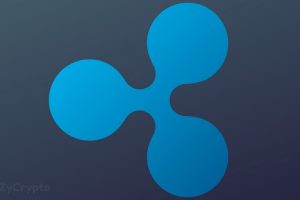Montenegro Joins Hands With Ripple To Pilot First National Digital Currency — Huge Boost to XRP?

Ripple, the digital payment network, has partnered with Montenegro to help the small Southeast European nation develop its digital currency. The country’s prime minister, Dr Dritan Abazović, tweeted about the pilot project with Ripple on January 18, 2023, which did not go unnoticed by XRP enthusiasts.
Ripple To Develop National Stablecoin For Montenegro
Montenegro has commenced the creation of a digital currency following a collaboration with the global payments company Ripple. The nation’s Prime Minister, Dr. Dritan Abazović, announced his meeting with Ripple CEO Brad Garlinghouse and Ripple Vice President for Central Bank Engagement James Wallis via a tweet written in Bosnia.
A loose translation of his two-part Twitter thread reads: “A productive meeting with Ripple CEO Garlinghouse and Ripple Vice President of Central Bank Engagement James Wallis. We talked about developing a payment infrastructure that would enable greater financial accessibility and inclusion. Montenegro is open to new value and investment.”
The Montenegrin Prime Minister added that the nation is teaming up with Ripple on a pilot project for a national digital currency: “In collaboration with Ripple and the Central Bank, we have launched a pilot project to build the first digital currency or stablecoin for Montenegro,” he said.
Montenegro became a candidate for membership in the European Union (EU) in December 2010 and its negotiations with Brussels opened in 2012. As it stands today, its application is yet to be approved. Nonetheless, the Euro is used in Montenegro, although not in a legal tender capacity.
Does The Project Involve XRP?
Ripple has become increasingly active in the development of central bank digital currencies (CBDCs) since piloting a private version of the XRP Ledger back in March 2021, providing a platform for central banks around the world to issue their digital currencies securely. Partnerships with the Royal Monetary Authority of Bhutan and the Republic of Palau were announced months later.
The blockchain firm is pushing harder into the CBDC space, but will XRP be a part of the CBDC projects? This is an important existential question. The extent to which the XRP ledger or even the XRP cryptocurrency will play a role in a potential Montenegro digital currency is as yet unknown.
The SVP and MD at Ripple, Brooks Entwistle, memorably noted during a recent interview that “there are places where we can play, maybe with a sidechain to the XRP ledger. We may help with the interoperability across this, but it’s going to be different for every single central bank.”
Meanwhile, Ripple has been busy putting to bed its long-standing legal dispute with the U.S. Securities and Exchange Commission over whether XRP tokens were sold via an unregistered securities offering. Ripple chief Brad Garlinghouse expects the case to be concluded in the first half of 2023.
XRP is currently trading at about $0.401, according to CoinMarketCap data. The sixth-largest cryptocurrency is down 3.05% today but has appreciated by 16.6% over the last 30 days.
Looking ahead, we’re likely to hear more news of Ripple partnering with new countries to develop digital currency strategies. But will this unlock mainstream adoption of XRP as the majority of central banks integrate the token into their CBDCs? That much the future holds.
Source: Read Full Article
